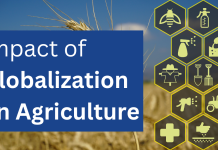When most people hear the name NABARD, they usually think of loans for farmers or rural infrastructure. That image is accurate, though it hides a quieter layer of technical work that gives shape to those loans. This is the world of sectoral analysis, district credit planning, and long-term credit strategy.
Economists form the backbone of this space. Their job is to understand how rural markets behave and then guide how credit flows into those markets. If you are an economist searching for a meaningful career path, this field offers both stability and long, steady growth. Read through this blog for a better understanding of NABARD Economist Careers.

NABARD Economist Careers: Importance
NABARD’s role in the rural economy is wide. It supports banks, state governments, and cooperatives while also tracking trends in agriculture, rural industries, and natural resource management. To make this possible, the institution depends on careful research and continuous evaluation. That is where economists step in. They study cropping cycles, price changes, supply chain risks, and the financial needs of rural enterprises. Their findings shape the credit plans that guide lending across districts.
The well-known Potential Linked Credit Plan, often called the PLP, is one example. Every district has a PLP that estimates the demand for loans across sectors such as agriculture, dairy, fisheries, storage, renewable energy, and small industries. Economists examine field data, talk with local officials, meet farmers, review market information, and prepare these credit estimates. These plans then influence how banks set their lending targets. In that sense, economists act almost like architects of rural credit.
I once met a young officer who said he had not realised how much reasoning and field observation go into these plans. He had imagined the work would be mostly desk analysis, but he soon learned that every district behaves differently. Some rely on monsoon pulses, others depend on vegetable clusters or small processing units. That variety keeps the work interesting. It also shows why skilled economists are essential.
NABARD Economist Careers: Types of Roles Economists often hold
NABARD Economist Careers span a wide range of positions. Some enter through direct recruitment as officers handling sector studies and district plans. Others join research units that examine long-term trends in rural development. Many economists support project appraisal teams, where they help evaluate whether a new dairy plant or storage unit is financially sound.
You will also find economists working with Project Management Units under state departments. They review data from ongoing projects, prepare notes on emerging opportunities, and guide implementation teams. A number of consulting firms prepare feasibility studies and reports for NABARD-supported schemes. These firms hire economists to analyse supply chains, assess credit gaps, or recommend new lending models.
In later stages, experienced economists often move into policy advisory roles. They help design credit strategies for agriculture, rural industries, or climate-related investments. Some join training institutions that build capacity among bankers, producer groups, and government officials. Others shift to independent consulting, where they handle specialised tasks such as value chain planning or climate finance assessments.
NABARD Economist Careers: What Makes Economists Stand Out
While a strong academic foundation matters, for NABARD Economist Careers, long-term growth depends on practical skills. The first is the ability to work comfortably with field data. Rural statistics can be messy and incomplete. An economist who knows how to clean data, check for inconsistencies, and extract patterns will always be valued. Applied modelling helps, though the focus here is more on interpretation than fancy equations. The question is usually simple. Does this district need more investment in horticulture? Will a cold storage help farmers earn better? Why is the credit off take for a scheme slow? Models support these questions, but field logic completes them.
Knowledge of rural sectors is equally important. A small gap in understanding can distort a plan. For example, a vegetable cluster may appear profitable, but if it lacks cold storage or reliable transport, the estimates will be off. Economists who understand supply chains, market days, seasonal shortages, and common risks prepare more realistic plans.
Another key skill is clear writing. NABARD depends on concise reports and notes that help decision makers act without confusion. A good economist can translate technical analysis into a simple paragraph that anyone can understand. This ability becomes even more important when dealing with senior officials, district collectors, or bank managers.
Data tools are also becoming necessary as digital systems expand. Knowing how to handle spreadsheets, basic scripting or simple geographic tools gives an economist an edge. It also speeds up work during the busy months of credit planning.
Finally, soft skills play a large role. Many economists succeed simply because they listen well and observe patiently during field visits. Rural credit is shaped by people with different priorities. Farmers, bankers, cooperative leaders, and local officials all bring unique perspectives. An economist who communicates with clarity and respect gains trust quickly.
NABARD Economist Careers: New Pathways
There is no single path. Many NABARD Economist Careers flow directly through officer-level exams. This route gives exposure to credit planning, research assignments, and coordination with states. Another path is to start with consulting organisations that prepare Detailed Project Reports and sector studies. This work exposes you to a variety of assignments, from fisheries to renewable energy. Economists who begin here often develop a strong analytical base.
Some enter through think tanks, NGOs, or research institutions. Experience in field studies or livelihood projects helps when shifting toward credit strategy roles. I have seen economists who spent a few years in watershed projects later join district planning units and do quite well. Their field instincts sharpened their work.
A number of professionals also build careers as independent consultants. They take up assignments related to value chain studies, monitoring work or climate finance. This model suits those who prefer flexible schedules. The only requirement is a solid reputation and a reliable network among development agencies.
NABARD Economist Careers: What Makes it Meaningful?
The most satisfying part of working in rural credit strategy is the sense of real impact. Economic analysis is not an academic exercise here. It affects small decisions, like whether a group of farmers receives support for a new dairy unit, and large decisions, like how much a district invests in irrigation for the next five years. Many economists enjoy this mix of analysis and real-world influence.
The work also changes with every season. A sudden drop in groundwater, a new market link for tomatoes, or a change in state policy can shift credit needs. You will find yourself revisiting old assumptions and adjusting your plans. This rhythm keeps the job lively, even after many years.
There are moments of frustration, too. Data may arrive late. Approvals may move slowly. A promising idea may stall due to operational limits. Many economists learn to balance ideal solutions with practical choices. The goal becomes to design plans that can actually be implemented and not just admired on paper.
NABARD Economist Careers: Emerging Areas
Rural finance is evolving. Several new areas are opening up space for economists.
Climate-focused planning is one of them. Many districts now require credit strategies that consider water stress, changing crop patterns, and the need for climate-resilient infrastructure. Economists who can link climate indicators with financial planning will find growing opportunities.
Digital finance is another. With mobile banking and rural payment systems expanding, economists who understand behavioural patterns in digital transactions can shape smarter credit products. These insights help banks reduce risks and improve reach.
Value chain financing is gaining attention. More districts are promoting Farmer-Producer Organisations and small processing units. Credit strategies for these groups depend on cost analysis, risk sharing and a strong understanding of market behaviour. Economists who specialise in these areas often build long-term advisory careers.
Disaster-linked credit planning has also become important. Flood-prone or drought-prone districts need plans that support quick recovery. Designing products that help families rebuild livelihoods requires a mix of economic judgement and sensitivity.
NABARD Economist Careers: How to Prepare
If you want to pursue this path, start by reading district credit plans and simple sector studies. They teach you how analysts organise information and prioritise interventions. Spend time exploring basic data tools. Even simple skills can help you stand out during field assignments.
Try to visit a rural project if possible. Observing how a storage unit operates or how a dairy cooperative manages procurement can change the quality of your analysis. These small experiences add depth to your reports and help you avoid common mistakes.
Develop the habit of writing short notes that summarise your thoughts with clarity. Decision makers appreciate concise summaries that highlight the main issue and suggest a practical solution.
Build connections with people working in banks, development agencies, and research groups. Many opportunities come through conversations rather than job postings.
Summing Up
A long-term NABARD Economist Careers, especially in sectoral analysis and credit strategy ecosystem, suits those who enjoy steady, thoughtful work. The job blends field observation with data, analysis with human judgment, and policy with local realities. It grows slowly but surely. If you value clarity, patience, and meaningful impact, this field can offer a rewarding professional journey.
Economists who enter this space often stay for many years. They refine their understanding of rural markets, build trusted networks, and contribute to decisions that shape thousands of livelihoods. There is a quiet satisfaction in knowing that a careful analysis or a well-prepared plan helped channel credit into the right hands at the right time. That sense of purpose keeps many professionals anchored in this path for the long run.
At ixamBee, we specialize in providing comprehensive online courses for government exams and online courses for government jobs. Our expertly designed courses for government jobs cater to a wide range of upcoming government exams. Whether you’re preparing for specific courses for government exams or seeking general guidance, ixamBee offers resources like Beepedia previous year papers, SSC CGL, SSC CHSL, SSC MTS, and other mock tests to succeed in exams like RBI Grade B, SEBI Grade A, NABARD Grade A, RRB NTPC, SSC MTS, NIACL Assistant, and more.
Also Read
NABARD Grade A Careers: Project Appraisal and Oversight for CAs
Career Growth for Electrical Engineers in NABARD-Supported Infrastructure Projects
Career Opportunities for Media Specialists in NABARD















